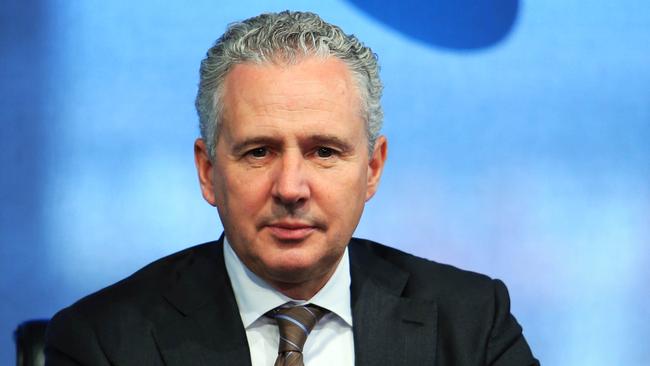Telstra most exposed amid blue chip bloodletting
As many mum and dad favourites take a market beating, it’s Telstra that faces the toughest challenge.

Penn’s new strategy would be to go for growth — share price growth — this week the stock has fallen below $3 — at $2.87 Telstra shares are back where they were in 2012.
Telsta’s downturn is not isolated. In fact the core blue chip portfolio held by many Australian investors is now under serious threat. The big four banks and Telstra — have taken a thumping this year.
Worse still, several of these stocks, such as Telstra, CBA and also AMP, were companies that introduced a whole generation to the sharemarket.
Through privatisation (CBA) or demutualisation (AMP) these stocks were how many ‘mums and dads’ made their debut as investors.
Now this blue chip backbone of the retail investment portfolio is crumbling.
The major banks have huge regulatory issues ahead of them. NAB, for example, has shrunk to a market capitalisation that is less than blood products group CSL.
AMP, one of the most storeyed groups on the local market is facing a fight for its future as a wealth manager and insurer as its denuded management ranks waits for the royal commission’s ultimate findings.
But no stock faces tougher underlying economic challenges than Telstra.
Faced first with a dividend cut, the Telstra faithful are now watching a rout in the sharemarket.
What’s more, the share price is falling not because Penn offered an effective profit downgrade this week, rather sellers are dumping the stock since neither Penn nor his senior management are offering a clear way forward.
What’s more, the pressures facing the company — especially in the consumer market where volumes are rising but profits are falling — are about to get worse with upstart telco TPG planning a blockbuster ‘price giveaway’ when it opens its new network.
Stockbroking analysts are now openly questioning if Telstra can sustain its already reduced dividend per share of 22 cents.
Ord Minnet for examples say the dividend could be down to just 18 cents by 2021.
Broker Morgan Stanley which was early to put a ‘sell’ tag on the stock has pointed to a parallel situation in Europe to the Telstra/TPG scenario, where a leading French telco Orange Ltd found itself trounced by new competition known as Iliad ltd.
For investors it is worth noting that the both the incumbent and the upstart in the French market have has not been great investments.
In Australia, Telstra is struggling due to lower margins and the arrival of the NBN.
However, it’s greatest threat in the future will be price cutting in the consumer sector and that will be led by ASX-listed TPG.
For telco investors the problem is that TPG is also struggling in its role as the ‘disrupter’. TPG plans to provide the first six months of service on its new network for free and then offer ongoing plans which work out at about half of some existing packages from leading players.
(The plans are not directly comparable with different speeds and datavolumes offered).
But TPG has also disappointed shareholders with CEO David Teoh offering an uninspiring set of financials some weeks ago which prompted a ‘sell’ from Goldman Sachs.
Perhaps the best historic parallel to the telco wars in our market was the one-time arrival of Aussie Home Loans into the major league of residential mortgage banking — the key industry outcome was the reduction in mortgage prices among the major banks.
There is every chance this will be the outcome among Australian telcos where neither Telstra nor TPG will greatly reward investors but consumers will actually win with lower prices.
For Telstra investors, there is some consolation that the dividend yield is now more than 7 per cent — but 7 per cent yields are not that valuable if the underlying share price is dropping relentlessly.
The most gloomy of local analysts believe Telstra has further to fall with some estimates at $2.70.







Less than a year ago Telstra CE0 Andy Penn asked the company’s one million shareholders to take a journey with what was still seen as a blue chip stock. The telco’s share price was about $4 at the time it announced it was cutting its all-important dividend.